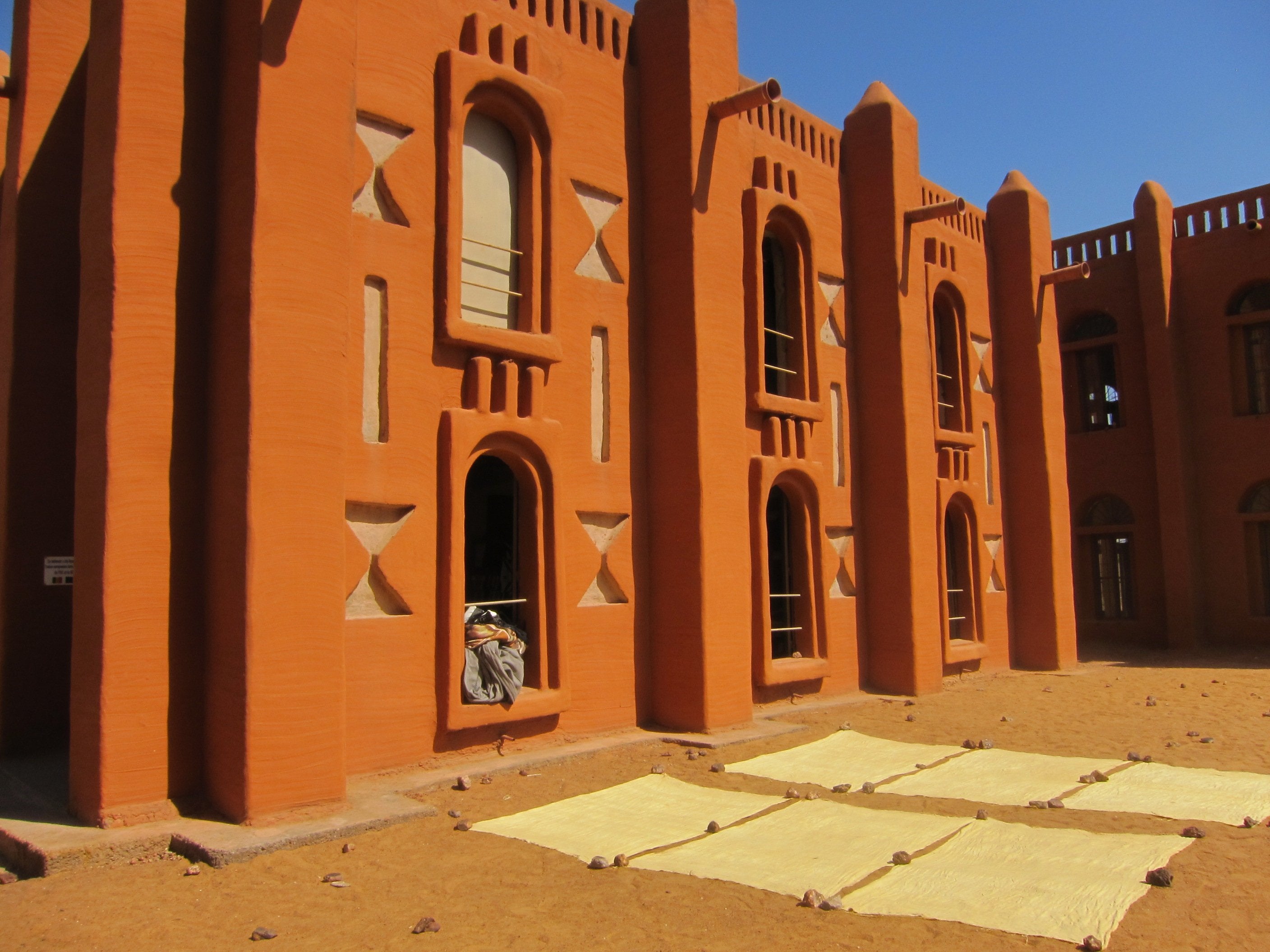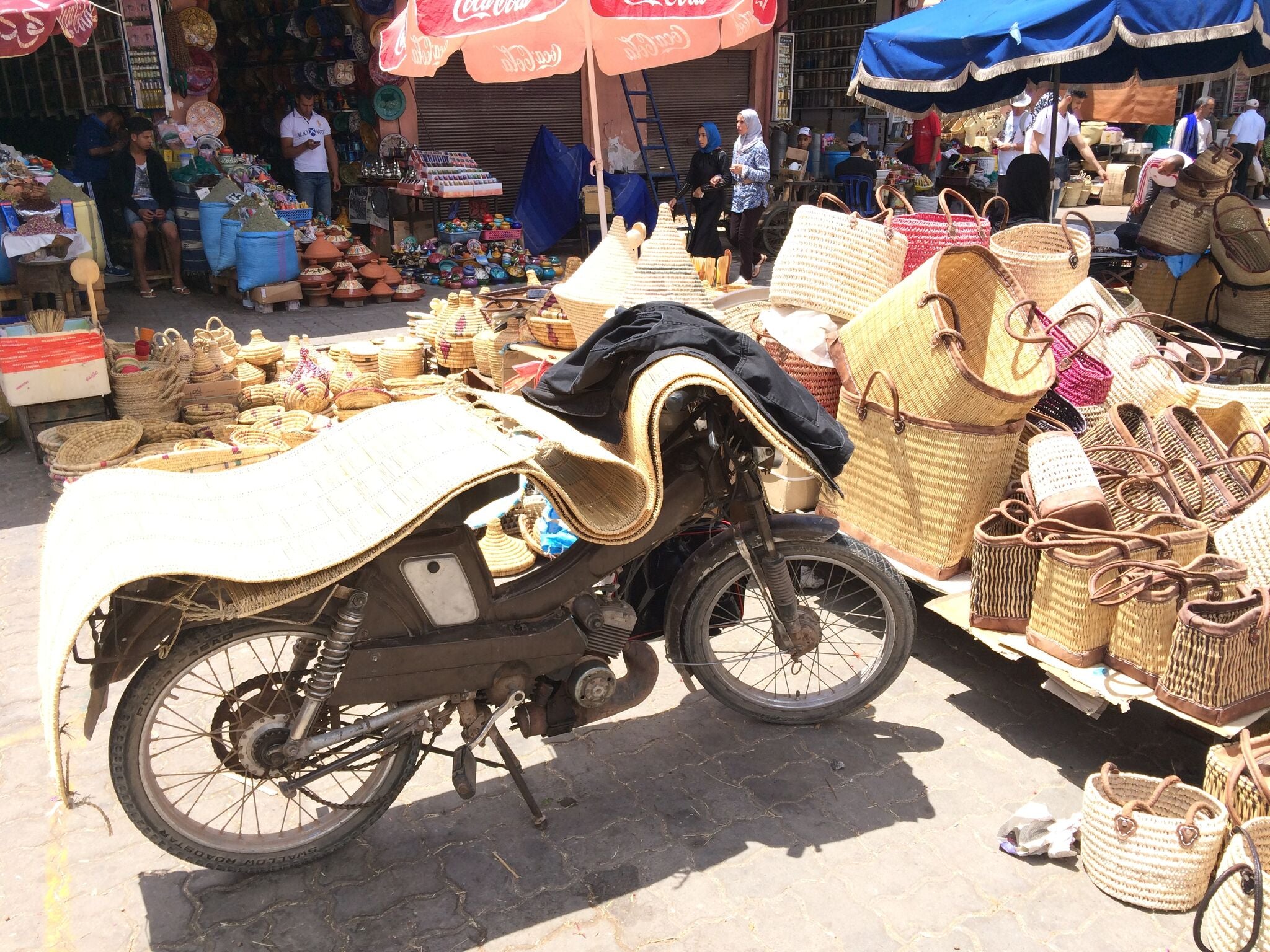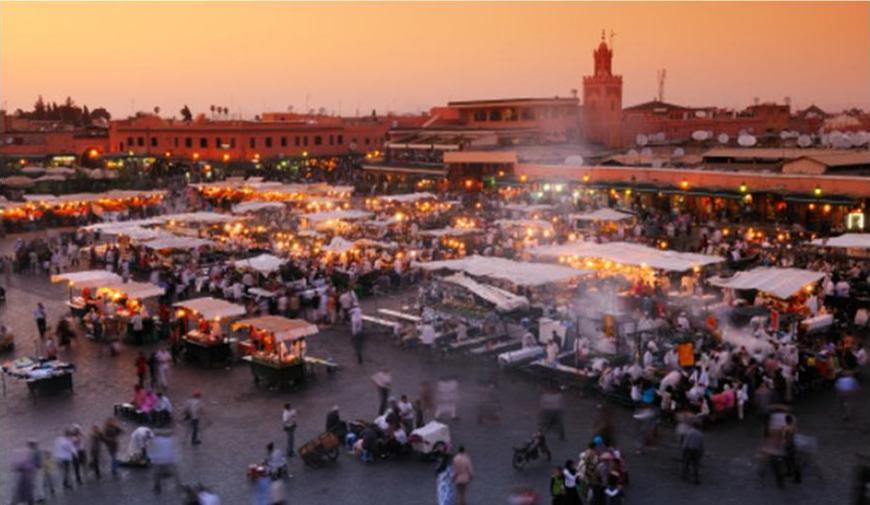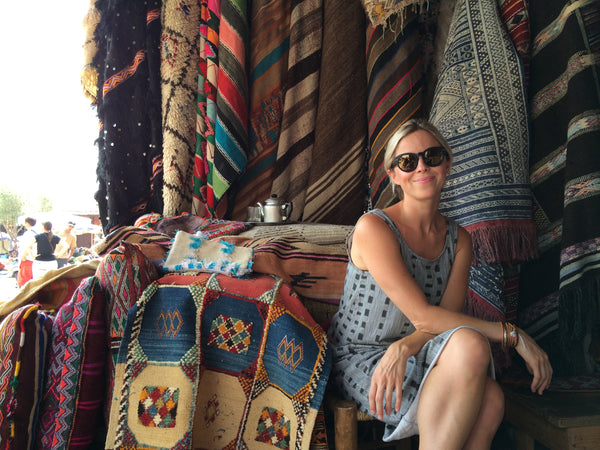PARTNER SPOTLIGHT: MADE & WORN WITH PRIDE
>>Mali, West Africa
>> The Blue People
WHAT'S OLD IS NEW: THE MODERN CLASSIC
While the industry doesn't like to see existing craft techniques disrupted, Poe has a fresh perspective on balancing the preservation of and respect for traditions with the market demand for fresh, relevant designs.
“These people are artisans. To tell them, we want you to it exactly this way, the same your mom did it, the same way your grandmother did it, we don't want you to change anything - that's kind of weird. You would never tell an artist here [in the U.S.] just keep doing something the same. In my experience, they welcome the opportunity to learn something new. Understanding how it’s made and [keeping] the technical aspects of the product the same, but then changing colors or designs without totally going away from what they do traditionally - i think it’s fairly easy to find that balance.” Harper Poe
>>Moroccan Cobbler Diplomacy
“The idea of sustainability and capacity building in the developing world is difficult to understand: ‘If you do this now, you're going to make so much more in the future’” Harper Poe
One of Proud Mary’s product success stories is set in Morocco, home to the shoemakers behind the brand’s best selling espadrilles. Poe started production in the coastal town of Essaouira, traditionally known for its raffia work, but moved in order to meet rising demand. “It’s been abit of a transition. We are totally at capacity, which is great.” she says. The raffia uppers are now handwoven 20 women - more than double the original number - who live in villages just outside Marrakesh. The uppers are then passed to and finished by a family of cobblers (father, uncle, brother) who work in the souk, a local bazaar.
“We had to add a couple more weavers and they happened to live in the same village. One of the women happened to walk by this other woman's house and saw the shoes and was like “That’s my job, that's my customer!” We had to do damage control and let them know that we need all of you to do this, and we know that you can't handle this on your own. I guess the moral of that story is that women are the same everywhere!” Harper Poe

IT'S ALL RELATIVE
In regions like Lesotho, Morocco and Mali, Poe sees where less industrial capacity means less familiarity with the rewards of scaling. “Costing and pricing is probably the biggest, most difficult part of this,” says Poe. When I’m first starting to work with people, if they have exported before and they understand that process, if they understand working with someone whos going to resell and they understand the idea of volume and wholesale in general, it’s a lot easier. But if you're dealing with someone who's only sold bags in the local tourist market, then they are going to try to get the absolute most for that product as possible. Trying to convince them that if they lower their price a little bit they can sell 500 instead of 5 is really difficult”
>>Next Up: Lesotho
Purposeful wanderlust had led Poe to her newest frontier, Lesotho, where the World Bank now funds projects that boost the local craft sector. The region, while abundant in natural resources, lacks infrastructure and market know-how.
“Lesotho has a great number of sheep and lots of wool, but no industrial cleaning system, so the material is sent to South Africa for cleaning and then brought back at a higher price,” explains Poe, noting that the potential for economic growth through some basic capacity building.
With the World Bank’s aid and development of local industry, Lesotho’s wool and mohair can become better priced, and thus more competitive on the global market - keeping more of the economic gains within the community.
Poe says that when she visits a country for the first time, she immerses herself to get familiar with the production methods and available materials and to spend time with the artisans who will become her partner. “I get to know them, they get to know me and my aesthetic sense” and it’s this experience that informs product design, sometimes in unexpected ways says Poe. “I’ll think I have an idea of what I want to do, then i get there and go, ‘Oh my gosh, I've never seen this kind of weaving before.’” Conversely, that time enables Poe to explain what she brings to the table. “[The artisans in Lesotho] don’t really know what’s possible. They don't know exactly what I do. Just trying to explain how the whole process works - it’s like, ‘What’s a trade show?’”
“It's really exciting to be on a project from the very start. When I started, I had more of a bleeding heart approach. And now I think, ‘This is business’ - treating them like business partners and being more matter-of-fact about it, like, ‘I really want you guys to make money!” Harper Poe

>>What It All Means
Spending time with the artisans who produce Proud Mary’s products “makes me feel like I want to work harder,” says Poe. “I want to sell more for them because I know them, I’ve met their families. And I think that having those connections and having the world not feel so teeny - my world doesn't revolve around Charleston, South Carolina. I can talk to someone in Morocco in the morning, then skype someone in Mali.”
“The world is big and everyone’s not the same, and really living that is important to me” Harper Poe







